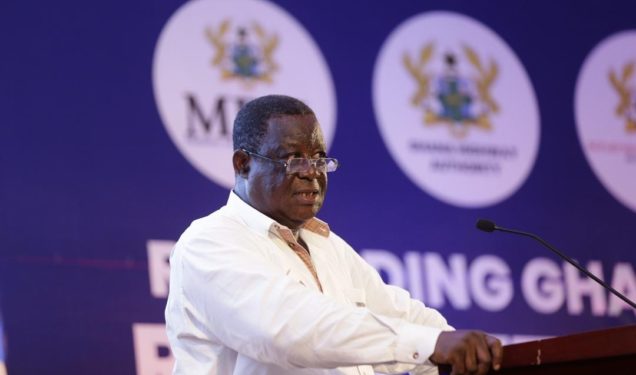Kwasi Amoako-Attah, Minister of Roads and Highways, is seeking the cooperation of road contractors throughout the nation in order to pass the controversial Electronic Transaction Levy (E-levy) Bill.
According to him, the approval of the Bill would enable the government to generate cash in order to pay off the outstanding obligations owing to road contractors as soon as possible.
The Minister asked road contractors to support the introduction of the levy in order for the government to improve roads in the country during a meeting with the leadership of the Road Contractors Association.
“If e-levy comes, we get our fair share into the road sector. Within a very short time, all outstanding contractors’ debt will be paid and you can work more for this country. We expect you to speak, you are going to be the direct beneficiaries of this levy and every serious government will not joke with contractors,” he said.
He added that “we are bringing a levy that will help to build a fund to support infrastructure generally, especially road infrastructure.”
Mr. Amoako-Attah, as Minister of Roads and Highways, has been a vocal supporter of the Bill’s passage. On February 3, 2022, he called on Ghanaians and Northern Region Members of Parliament to support the passage of the Electronic Transaction Levy (E-levy) Bill.
“So the people of this county and the people of Tamale, All MPs in Tamale you must support the passage of the E-levy Bill for more to be done for them and their constituencies,” he appealed.
About E-levy
On Wednesday, November 17, 2021, Finance Minister Ken Ofori-Atta revealed that the government intended to implement an Electronic Transaction Levy (e-levy).
He said that the fee is being implemented to “widen the tax net and rope in the informal sector.” This comes on the heels of the government’s recent declaration that it aims to cease the collection of road tolls.
The proposed levy, which is set to go into effect in January 2022, is a 1.75 percent charge on the value of electronic transactions. It includes mobile money payments, bank transfers, merchant payments, and remittances received from abroad. For transactions of up to GH100 every day, there is an exception.
In explaining the government’s decision, the Finance Minister said that total digital transactions for 2020 are expected to exceed GH500 billion (about $81 billion), up from GH78 billion ($12.5 billion) in 2016. As a result, there is a need to broaden the tax net to cover the informal sector.
Although the government has stated that it is an innovative way to generate revenue, scores of citizens and others have voiced varying opinions on its appropriateness, with many strongly opposing it.
Despite the fact that some have spoken in favor of the levy, a segment of the population feels that the 1.75 percent e-levy is an insensitive tax policy that would exacerbate the country’s already dire situation.
Read Also: Appiatse explosion: We didn’t commit any breaches – Maxam Ghana Limited
SOURCE: myjoyonline



























